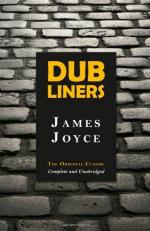|
This section contains 305 words (approx. 1 page at 400 words per page) |

|
Discussions of Joyce's earlier fiction, Dubliners and A Portrait of the Artist as a Young Man, frequently center on those moments in which characters achieve an "epiphany" or sudden revelation. The term, which Joyce used to describe some of his earliest prose fragments, means, literally, a showing forth. In the Christian calendar, the feast of the Epiphany commemorates the arrival of the Magi in Bethlehem to worship the new-born Christ. For Joyce, the word has a broader meaning, standing for a moment of insight, when a truth is suddenly revealed. Most of the stories in Dubliners do feature discernible epiphanies: the young boy in "Araby" clearly has a poignant moment of insight about his world as the bazaar lights dim, for instance, and Gabriel Conroy undergoes a terrible self-examination in the final moments of "The Dead." In other cases, such as that of Maria in "Clay...
|
This section contains 305 words (approx. 1 page at 400 words per page) |

|




